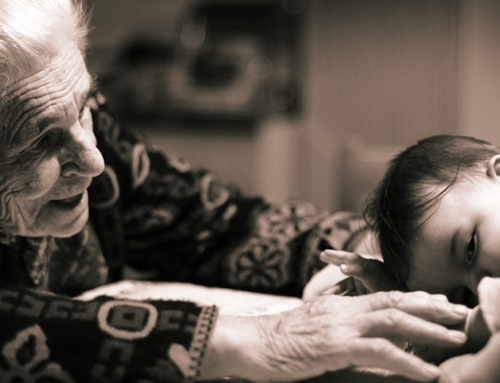By: Laura El Alam
Embracing Islam: A 20-Year Transformation
When I became a Muslim 20 years ago, it was one of the greatest transformations of my life. There was so much new information that it seemed completely overwhelming at first. Just learning how to pray, including making ablution (wu’du), familiarizing myself with the choreographed movements of standing, kneeling, and prostrating, and memorizing the chapters in Arabic was an enormous challenge. Add to that all the new guidelines for Islamic behavior including appropriate dress, interactions with the opposite gender, Islamic manners, and vocabulary. It was an enormous undertaking. Thank God for the fervor and sincerity of new Muslims that empower us to take on such a momentous task!
Navigating New Challenges and Anticipating Support from Loved Ones
The metamorphosis from non-Muslim to Muslim often requires even more than those efforts, though. Many times new converts feel they need to explain their sudden life changes to family and friends and sometimes even to acquaintances or strangers. This can be emotionally exhausting at a time that is already fraught with challenges.
If you are new to Islam, these tips might help you anticipate what to expect from loved ones and give you some strategies to handle the transition.
1 Handling Loved Ones’ Reactions
Be prepared to accept that many of your family and friends will not react well to your conversion. This is to be expected, as change is scary to many people. Your loved ones might feel very unsettled if they see you undergoing a drastic transformation that doesn’t include them. Deep down they probably fear you are leaving them behind. They might worry that your relationship with them will never be the same again, or that you will change in a fundamental way that will keep them from ever truly knowing you or relating to you again. If they have a firm conviction in a different faith, they might fear you are taking the wrong path and worry about your salvation. While you might not be able to convince them that your choice is the right one, you can reassure them that you have made your choice freely, after much research, and with a deep faith in God (Allah) and His mercy.
2 Dispelling Misconceptions
Keep in mind that most non-Muslims don’t know much about Islam except for stereotypes they see in the media. Some may challenge, question, and debate with you. They probably lack even the most basic information about Islam and additionally might have misconceptions that will take time and experience to dispel.
3 Balancing Boundaries
Your own time and stamina are limited, though. Save your emotional energy for those who really matter to you and are closest to you. Your parents, siblings, and dearest friends will probably demand a lot of explanation and need a great deal of reassurance from you, and if you want to keep them in your life, you will probably need to invest some time in educating them about Islam and explaining your decision to convert. However, remember that your spiritual journey is a very private endeavor that involves your soul and your eternal fate, not theirs. No one has the right to dissuade you from following your convictions, or to try to pull you off a path you are convinced is correct. If they are pressuring you to give up Islam and disrespecting your boundaries, you probably need to take a break from them, for a while. At the same time, try to find a Muslim mentor or group of brothers or sisters in faith who can support you in your journey.
4 Prioritizing Peace
Do not allow the drama to overwhelm you. Transforming your lifestyle, practicing a new faith, and understanding a new worldview take up quite a lot of energy and time, so don’t waste much of your precious bandwidth on people who don’t really matter. If your co-worker, nosey neighbor, or random person at the grocery store wants to debate with you or question you in any way that is imposing or intrusive, remember that you do not owe them anything – no clarifications, apologies, or justifications.
I learned this the hard way after trying to “people please” for too long. We don’t owe strangers an explanation for the way we choose to live our lives, how or whom we worship, how we dress, or what we eat or don’t eat. So, leave as much drama behind as you can. You don’t have to show up to every argument you’re invited to.
5 Embrace Learning Together
Don’t feel like you have to be an expert on Islam, or non-Muslims’ only source of knowledge. If family and friends start questioning you about Islam – particularly about specific, nitpicky topics that you don’t even understand yet – don’t feel like you have to be a scholar and have all the answers at your fingertips. Nowadays there are wonderful books and online resources that address the most commonly-asked questions. You will probably want to research many topics for your own knowledge and growth, but you can also direct your loved ones to those same resources and websites, so they can do some reading on their own. If they truly care for you and desire to find answers, they can invest some effort.
6 Seeking Knowledge from Reliable Sources
That said, we should all make sure we consult reputable sources for our Islamic information. There are many Islamophobic websites that choose to paint our faith in a negative light. Some trustworthy sites are: whyislam.org, www.muslimmatters.org, www.aboutislam.net, and https://www.clearquran.com/. Most of these have searchable databases that make it easy to find information on particular topics. While online research is useful, finding a Muslim mentor — someone who is knowledgeable, patient, supportive, and possibly even trained to provide guidance to new converts — is probably the best way to learn and grow. Inquire if your local mosque has any recommendations of a mentor or even a class for new Muslims.
7 Time Heals Hearts
Remember that things generally get better over time. While my own family members and friends had various reactions to my conversion, one thing has proven consistent: time has softened their hearts. Some of my feminist friends were shocked and disapproving when I started wearing a headscarf. My entire Catholic family was concerned about my insistence on worshipping God but not Jesus. Some secular friends feared I was going to be overzealous and sanctimonious. However, the passage of time showed them the kind of person that Islam requires me (and all believers) to be: calmly self-confident, driven by convictions, a person of manners, honesty, and integrity, and a loyal daughter/friend/wife/sister. Who can argue with results like that? Almost all of my fractured relationships have been mended and even improved over the years, Alhamdullilah, and now most of my non-Muslim family and friends are amongst my strongest supporters.
8 Finding Strength in Prayer
Pray/make supplication (dua). No matter what people do or think, Allah is our greatest ally. We should turn to Him for help, for when He wants to protect us, nothing can harm us. And if He is pleased with us, nothing else really matters.
Raised in a Midwestern Catholic family, Laura El Alam became a Muslim in 2000. She is a prolific writer whose work has been published in various magazines. Laura is the founder of Sea Glass Writing & Editing www.seaglasswritingandediting.com and runs the Facebook page The Common Sense Convert which aims to provide a beneficial online forum for Muslim women.
Got Questions?
We have Answers. Get in touch now.








